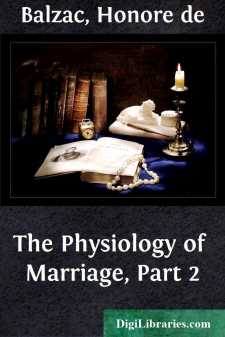Categories
- Antiques & Collectibles 13
- Architecture 36
- Art 48
- Bibles 22
- Biography & Autobiography 813
- Body, Mind & Spirit 142
- Business & Economics 28
- Children's Books 17
- Children's Fiction 14
- Computers 4
- Cooking 94
- Crafts & Hobbies 4
- Drama 346
- Education 46
- Family & Relationships 57
- Fiction 11829
- Games 19
- Gardening 17
- Health & Fitness 34
- History 1377
- House & Home 1
- Humor 147
- Juvenile Fiction 1873
- Juvenile Nonfiction 202
- Language Arts & Disciplines 88
- Law 16
- Literary Collections 686
- Literary Criticism 179
- Mathematics 13
- Medical 41
- Music 40
- Nature 179
- Non-Classifiable 1768
- Performing Arts 7
- Periodicals 1453
- Philosophy 64
- Photography 2
- Poetry 896
- Political Science 203
- Psychology 42
- Reference 154
- Religion 513
- Science 126
- Self-Help 84
- Social Science 81
- Sports & Recreation 34
- Study Aids 3
- Technology & Engineering 59
- Transportation 23
- Travel 463
- True Crime 29
Our website is made possible by displaying online advertisements to our visitors.
Please consider supporting us by disabling your ad blocker.
The Recruit
by: Honore de Balzac
Categories:
Description:
Excerpt
THE RECRUIT
At times they saw him, by a phenomenon of vision or locomotion,
abolish space in its two forms of Time and Distance; the former
being intellectual space, the other physical space.
Intellectual History of Louis Lambert.
On an evening in the month of November, 1793, the principal persons of Carentan were assembled in the salon of Madame de Dey, where they met daily. Several circumstances which would never have attracted attention in a large town, though they greatly preoccupied the little one, gave to this habitual rendezvous an unusual interest. For the two preceding evenings Madame de Dey had closed her doors to the little company, on the ground that she was ill. Such an event would, in ordinary times, have produced as much effect as the closing of the theatres in Paris; life under those circumstances seems merely incomplete. But in 1793, Madame de Dey's action was likely to have fatal results. The slightest departure from a usual custom became, almost invariably for the nobles, a matter of life or death. To fully understand the eager curiosity and searching inquiry which animated on this occasion the Norman countenances of all these rejected visitors, but more especially to enter into Madame de Dey's secret anxieties, it is necessary to explain the role she played at Carentan. The critical position in which she stood at this moment being that of many others during the Revolution the sympathies and recollections of more than one reader will help to give color to this narrative.
Madame de Dey, widow of a lieutenant-general, chevalier of the Orders, had left the court at the time of the emigration. Possessing a good deal of property in the neighborhood of Carentan, she took refuge in that town, hoping that the influence of the Terror would be little felt there. This expectation, based on a knowledge of the region, was well-founded. The Revolution committed but few ravages in Lower Normandy. Though Madame de Dey had known none but the nobles of her own caste when she visited her property in former years, she now felt it advisable to open her house to the principle bourgeois of the town, and to the new governmental authorities; trying to make them pleased at obtaining her society, without arousing either hatred or jealousy. Gracious and kind, gifted by nature with that inexpressible charm which can please without having recourse to subserviency or to making overtures, she succeeded in winning general esteem by an exquisite tact; the sensitive warnings of which enabled her to follow the delicate line along which she might satisfy the exactions of this mixed society, without humiliating the touchy pride of the parvenus, or shocking that of her own friends.
Then about thirty-eight years of age, she still preserved, not the fresh plump beauty which distinguishes the daughters of Lower Normandy, but a fragile and, so to speak, aristocratic beauty. Her features were delicate and refined, her figure supple and easy. When she spoke, her pale face lighted and seemed to acquire fresh life....












